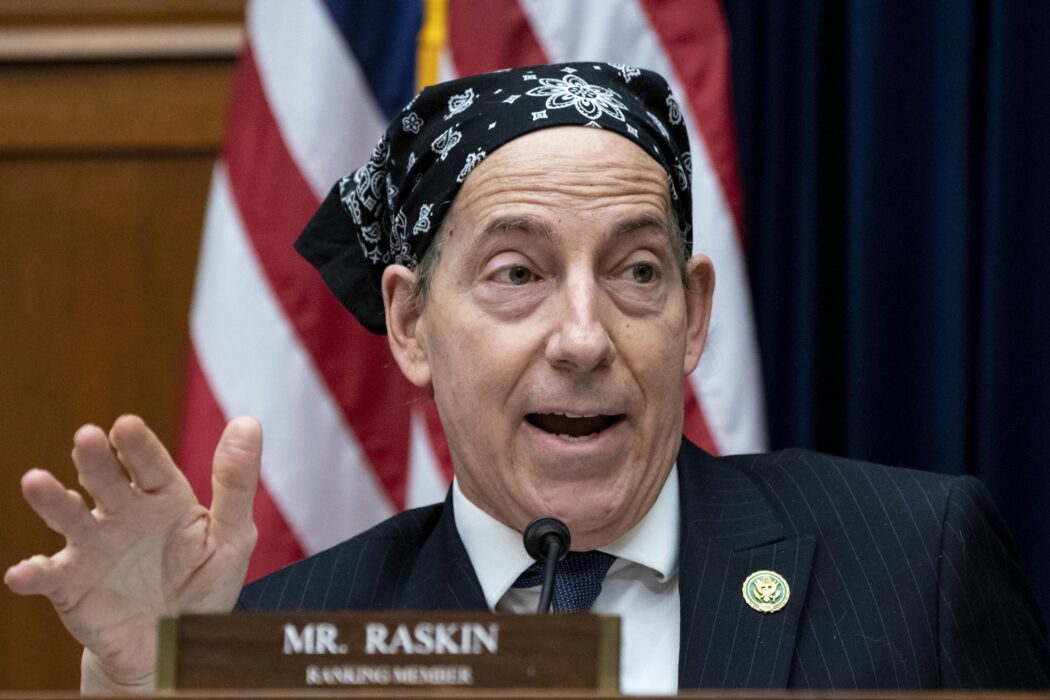Last week, a lecture on democracy at the University of Maryland (UMD) featuring prominent House Democrat Rep. Jamie Raskin (D-MD) was disrupted by hecklers, leading to the event being cut short by UMD President Darryll Pines. The disruption came as a result of the ongoing conflict between Israel and Hamas, and while Pines called it a show of "free speech," others have criticized the protesters for effectively shutting down the speaker.
The lecture, titled "Democracy, Autocracy and the Threat to Reason in the 21st Century," was intended to be a conversation about the state of democracy in the United States. However, as Raskin began speaking, hecklers interrupted the event, prompting him to open the floor for questions and comments. Pines later told reporters that while he wished the protesters had been more civil, their actions were in line with the theme of the lecture – the threats to democracy.
Raskin himself acknowledged that the sentiments of the protesters were aligned with the topic of the event, but he expressed concern that heckling has become a tool to drown out voices instead of engaging in productive discourse. He stated that he is not opposed to heckling, but noted that it should not be used to silence speakers and undermine free expression.
Following the disruption, comments from the UMD community and beyond have poured in about the incident. Nico Perrino, the executive vice president of the Foundation for Individual Rights and Expression (FIRE), rejected Pines’ characterization of the interruption as a display of democracy. He called it a form of "mob censorship," stating that these types of disruptions happen too often on college campuses and are often condoned by administrators.
NBC News reporter and UMD alumnus Jonathan Allen critiqued Pines for his perspective, suggesting that the disruption showcased the "loudest-voice doctrine" – the idea that the most vocal group can dictate the terms of discussion and intimidate others. He also emphasized that while federally funded schools have a duty to protect free speech, they also have a responsibility to protect the right to assembly and facilitate political discourse.
Congressman Jamie Raskin tried to give a speech at @UofMaryland on democracy and "the threat to reason in the 21st Century.”
It was relentlessly heckled and drowned out by people protesting Israel's invasion of Gaza.
The speech was ultimately shut down by the university… pic.twitter.com/DQVH2dkXoI
— Nico Perrino (@NicoPerrino) March 31, 2024
Some have argued that the disruption ultimately resulted in a more meaningful dialogue, as UMD professor Howard Milchberg suggested. Milchberg, who started the lecture in memory of his parents who survived the Holocaust, believes that the disruption was an exercise of democracy, rather than a story about it. He stated that it was a demonstration of the power of free speech and the opportunity for individuals to voice their opinions.
This incident has sparked a larger conversation about the state of free speech on college campuses. While some view the disruption as a positive exercise of democracy, others argue that it is a dangerous trend that stifles diverse perspectives and undermines the values of free expression and academic freedom.
It is debatable whether federally-funded schools have a duty to protect free speech, but there is no question that the First Amendment protects the right to assembly and political discourse. Intimidation and silencing of speakers, as seen in this disruption, goes against these principles and has a chilling effect on free speech and the exchange of ideas.
Ultimately, this incident highlights the importance of creating a campus environment that fosters open and respectful dialogue. While disagreement and debate are essential in a democracy, they must be conducted in a civil manner that allows all voices to be heard. As such, universities must work towards providing a platform for all perspectives to be expressed, and ensure that individuals are not intimidated or silenced for sharing their opinions. Only then can we truly have a meaningful dialogue and safeguard the principles of free speech and democracy.


